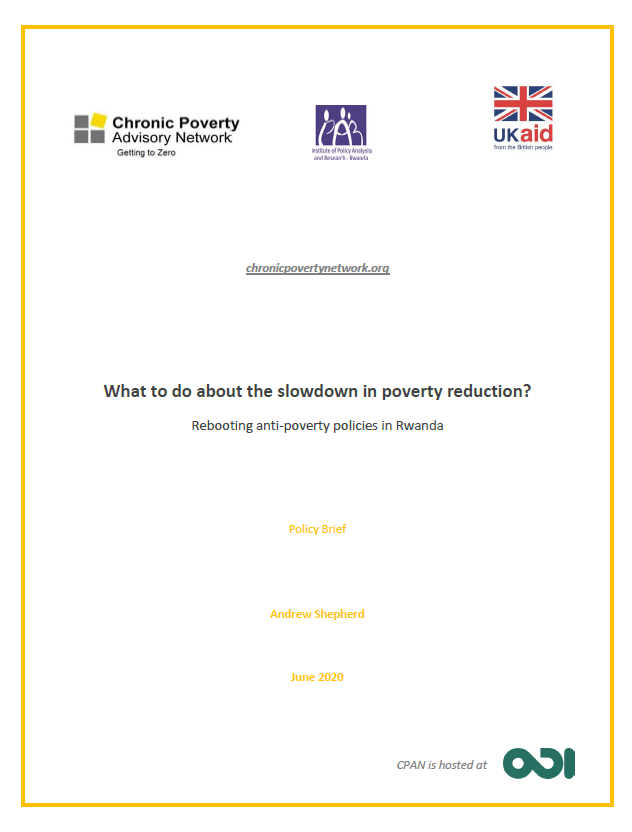Key points
• Rwanda had been a stellar performer in poverty reduction until recently. Many of the gains were the result of government policies and programmes, but some of these programmes also have unintended consequences which need to be reviewed.
• The slowdown in poverty reduction during the 2010s has been driven by fewer escapes from poverty, the challenges people face in sustaining escapes, greater impoverishment as well as continued chronic poverty.
• In Rwanda, as elsewhere, escaping poverty and then staying out of it is mainly possible due to ‘growth from below’, and the government has been promoting this, especially in agriculture. Since around 2012, the government’s main growth thrust has been in promoting ‘growth from above’ as well as continued support to smallholder agriculture, and this has achieved significant improvements in infrastructure, the business environment and investment, as well as productivity growth in farming.
• In reviewing the poverty effects of economic transformation, a better balance between support for growth from below and growth from above is needed, especially in the nonfarm rural economy and the urban informal sector. More comprehensive and better enabling conditions for growth from below would allow more poor people to participate in and benefit from growth. • Reviews of the following issues are needed: the reasons why the rural nonfarm economy is relatively underdeveloped; the unintended consequences of a number of regulations affecting small and micro-enterprises as well as smallholder agriculture; and the unintended consequences of a raft of policies which demand cost recovery from poor and vulnerable households, limiting the savings and investments these households can make.
• Current efforts to make cities more inclusive through city Master Plans are excellent and should be pursued with vigour. This could provide a model for the other reviews suggested above.
• Rwanda’s unique health insurance scheme provides exceptional protection against ill-health as a source of impoverishment. The government and development partners could acknowledge the other sources of impoverishment – including loss of livelihood due to environmental hazards as well as the policy emphasis on cost recovery – and address these more resolutely. The loss of male labour in households where there is separation, divorce or widowhood is a further source of impoverishment, and while the government has made strenuous efforts to enhance the rights of married women in such situations, unmarried women in informal or polygamous unions are less protected.
• There has been significant progress in increasing the numbers of children enrolling in school. However, education costs are significant components of household budgets, even for poor people. Reducing or eliminating these costs through significantly increased public expenditure on education and providing children from poor families with the means to continue through secondary education would contribute significantly towards reducing poverty both now and intergenerationally.
• There are two main sources of chronic poverty: gender inequalities resulting in disadvantaged women-headed households, and the growing dependence of the poorest Rwandans on casual agricultural labour. Extending the protections currently available to married women to unmarried cohabiting and polygamously married women, as well as further measures to tighten the labour market to complement refreshed minimum wage legislation, are potential ways forward. Such measures could include implementing and extending the minimum social protection package to promote graduation from protection and social cohesion.
Author: Andrew Shepherd

